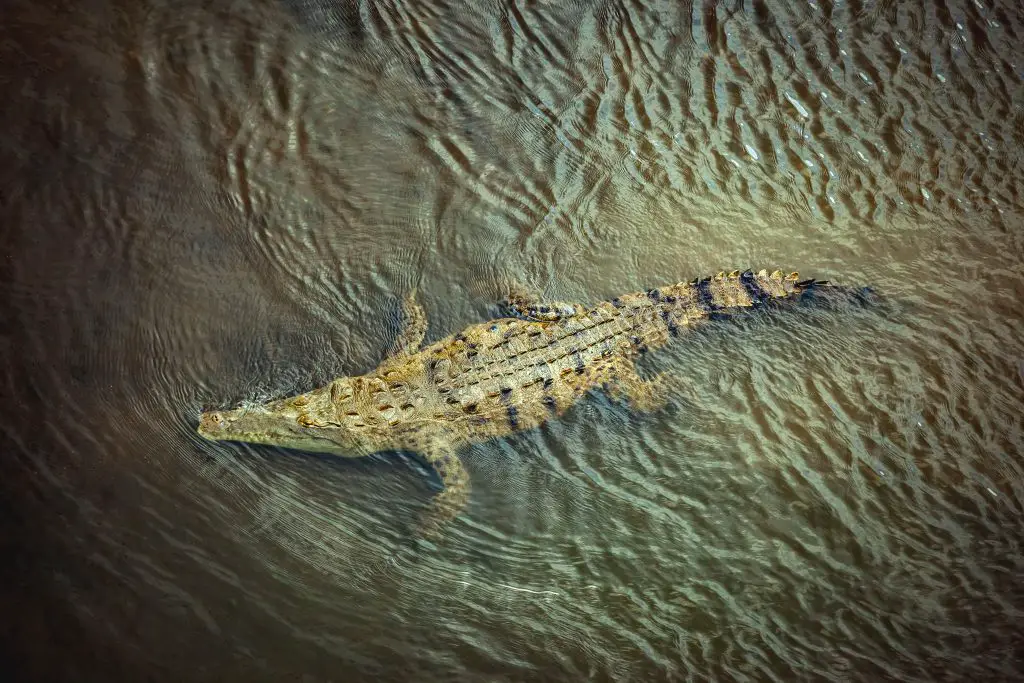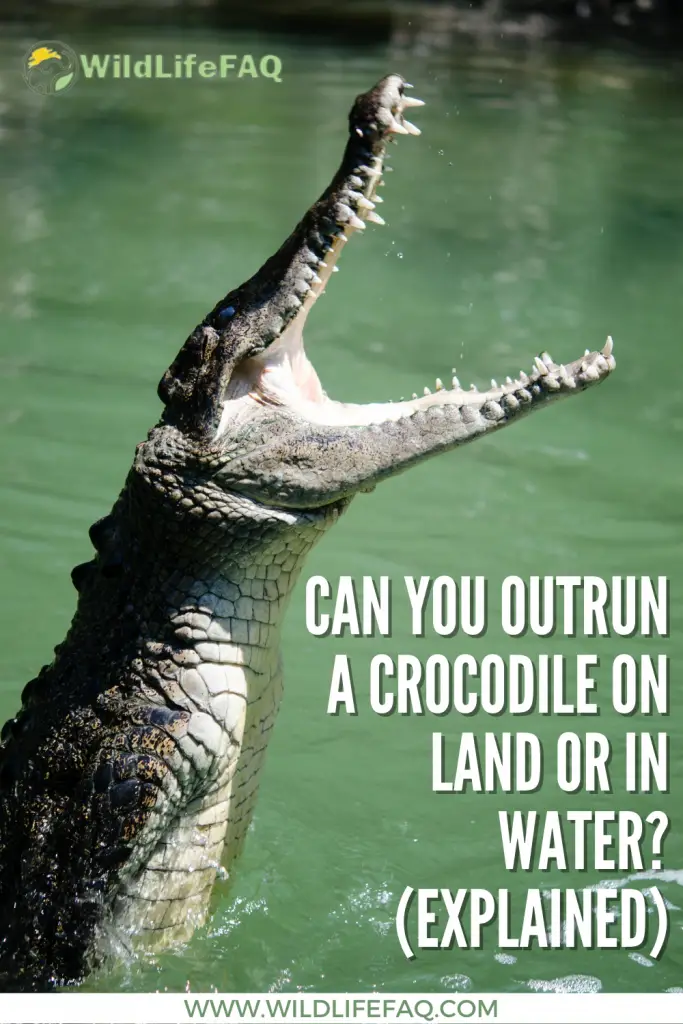Crocodiles can both run and swim faster than most humans unfortunately, but it’s very unlikely for humans to be attacked by crocodiles on land at least. Crocodiles and aligators run in bursts so they can maintain the fast speed.
Can You Outrun A Crocodile On Land?
Yes, you can – if you know a few tricks and have a bit of stamina – and ignore the zig-zag advice.
Although American Crocodiles (Crocodylus acutus) can – and have – attacked humans they don’t usually do so actively.
They certainly don’t prey on humans as they do on their normal prey species. An attack is usually an anomaly in their home range, out of fear or mistaken identity.
Crocodiles can easily run at around 20-35km/h (12-22mph) over short distances if they need to – which is faster than a human can run). However, this speed is normally only seen when they are running away from something – not chasing it.
Crocodiles are ambush predators – their greatest speed is in the first few seconds. Accelerating explosively out of the water and hoping to grab their prey before it even saw them coming. It is very unlikely to chase a prey item – let alone a human.
Therefore, if you were suddenly face to face with a crocodile out of water – run straight in the opposite direction as fast as you can – and you should be fine. They almost certainly won’t chase you – and if they did, they most likely wouldn’t last the distance.
Can You Outrun A Crocodile In Water?
Water is a whole different matter. Crocodiles have been practicing swimming and killing prey in the water since before the dinosaurs roamed the Earth. If you are in the water and the crocodile want to catch you – there would be little you could do to stop them.
Olympic humans can swim at around 7.6km/h (4.7mph) at full pelt for just a few minutes – Nile Crocodiles (C. niloticus) can swim at speeds of up to 30km/h (19mph) if they really need to. Slightly putting us humans in our place as terrestrial mammals.
Due to their gnarled scales on their back camouflaging them on the surface – and their ability to stay submerged underwater for up to 2 hours without surfacing – you might not even see them coming.
They have special sensors on their skin that feel any movement in the water – so can ‘feel’ an animal (or human) swimming in the water before they see them. So, if they are hungry – they can get a head start underwater.
Do Crocodiles Attack Humans?
Although American Crocodiles almost never attack adult humans – crocodiles in other countries do – and regularly.
Large crocodiles such as the Nile Crocodile and Saltwater Crocodile (C. porosus) are much more likely to attack humans than American Crocodiles – and some actively prey on humans.
It isn’t a one-off event – and unfortunately, they do so with some regularity! There are around 1000 deaths a year attributed to crocodile attacks (all species added together).
It is mainly to do with the size too – as crocodiles only attack and eat food relative to their size. Hatchling crocodiles eat insects and small fish; young crocodiles eat frogs, toads, and small mammals,
Only when they get bigger would they try for larger prey – and Nile Crocodiles can get up to 5m (16.4ft) and weigh in at over 225kg (500lb) – so need to eat big things. Humans are small fry compared to the zebras, tigers, giraffes, and elephants that these giant beasts usually catch.
Can You Outrun an Alligator in Water?
In the water, can you outrun an alligator? While their speed can reach up to 20 miles per hour, human beings are unlikely to outrun an alligator in its natural habitat. Outmaneuvering or swimming away from an alligator would be a safer strategy when encountering one in the water.
What’s More Dangerous: A Crocodile Or An Alligator?

Crocodiles are definitely more dangerous than alligators overall – and they seem more cantankerous too. However, in the U.S – the American Alligator (Alligator mississippiensis) seems to be the more dangerous.
According to records; there appear to be 9 recorded alligator deaths in the U.S. in the past 20 years – mostly in Florida. American Crocodiles are only recorded as 2 deaths in the past 20 years – and neither were actually in the U.S.
There have been more attacks recorded for both species though – but both the crocodiles and alligators don’t continue the attack; they often move away after the initial bite.
Still a frightening experience – and as both fresh and saltwater habitats can have crocodiles or alligators in them – there isn’t always the guarantee of a safe spot for a swim.








